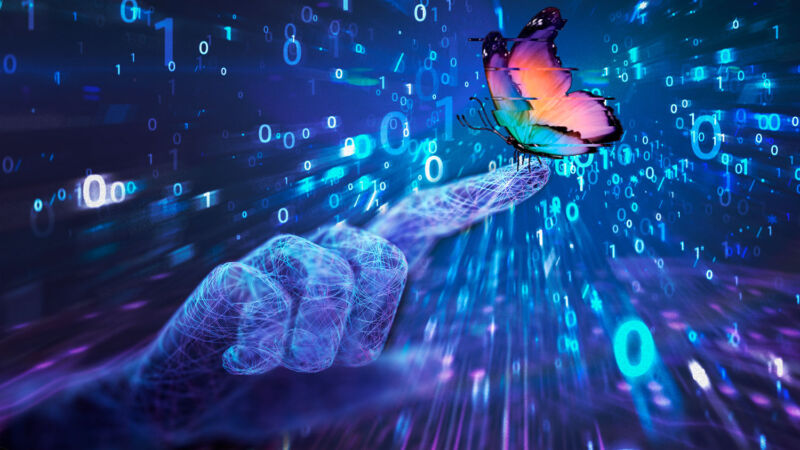 magnify / virtual worlds might be digital, however they will also be as actual and significant as our physical world, philosopher David Chalmers argues in his new ebook, truth+: digital Worlds and the problems of Philosophy. Aurich Lawson | Getty images | David Chalmers reader comments sixty five with forty three posters collaborating Share this story
magnify / virtual worlds might be digital, however they will also be as actual and significant as our physical world, philosopher David Chalmers argues in his new ebook, truth+: digital Worlds and the problems of Philosophy. Aurich Lawson | Getty images | David Chalmers reader comments sixty five with forty three posters collaborating Share this story there may be a famous scene in The Matrix the place Neo goes to look The Oracle. He meets yet another advantage in the ready room: a young child who seemingly bends a spoon along with his intellect. Noticing Neo's fascination, he tells him, "do not try and bend the spoon. it's inconceivable. as a substitute, only try to recognise the certainty." and what's that actuality? "There isn't any spoon," the infant says.
The implication is that the Matrix is an illusion, a false world developed by way of the machines to retain human beings sedated and docile whereas their our bodies function batteries to vigour the Matrix. but what if this assumption is inaccurate, and the Matrix were instead simply as real as the actual world? if that's the case, the infant would more accurately have mentioned, "try to understand the actuality. there's a spoon—a digital spoon."
it's the vital argument of a brand new publication, reality+: digital Worlds and the complications of Philosophy, with the aid of long island university philosopher David Chalmers. The Australian-born Chalmers is most likely most desirable standard for his development within the Nineties of what is wide-spread because the tough difficulty of cognizance. things like the ability to discriminate, categorize, and react to environmental stimuli; the mind's skill to combine suggestions; and the difference between wakefulness and sleep can all be explained via making a choice on an underlying mechanism.
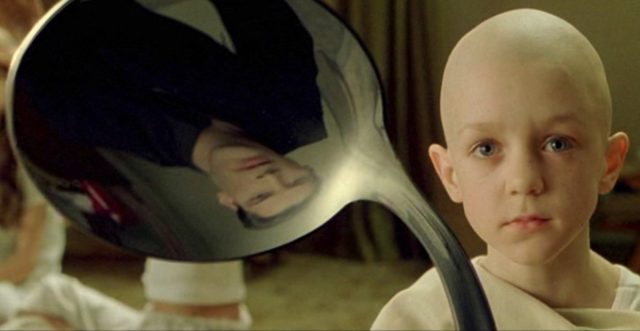 magnify / "there's a spoon—a digital spoon." Warner Bros
magnify / "there's a spoon—a digital spoon." Warner Bros however the subjectivity of experience is qualitatively different. feelings, the taste of strawberries, or the scent of lavender all fall below the "difficult difficulty" rubric as a result of they're a good deal more difficult to account for in physical or biological phrases. Chalmers has additionally championed the idea of "philosophical zombies": actual physical duplicates of human beings who lack any sort of attention or qualitative adventure.
further studying review: Matrix Resurrections has simply sufficient of the old magic to pride fanaticsChalmers has been considering The Matrix as it pertains to the so-called simulation hypothesis because the primary movie came out in 1999. The Wachowskis' creation business, purple pill, had employed a Clemson university philosopher named Christopher Grau while they were setting up the film, and they requested Grau to ask some of his academic colleagues to jot down essays about the Matrix for the film's web page. Chalmers changed into amongst those who acquired an invitation. He had already been engaged on an tutorial paper, and he become capable of adapt these early innovations into an essay, "The Matrix as Metaphysics."
advertisementIn that essay, Chalmers challenged the movie's oft-repeated theme that if someone is in the Matrix, they are experiencing an phantasm, an tricky deception, a hoax, or a fiction—in other words, the constant insistence that the Matrix isn't the "precise" world. "I argued that, sure, we may be in the Matrix, but when we're, it be still perfectly precise," Chalmers advised Ars. "It turns out that The Matrix is a fantastic means as an instance an entire set of philosophical ideas."
truth+ develops that critical techno-philosophical argument in more advantageous aspect, delivered in deceptively breezy, pretty much conversational prose. Chalmers uses The Matrix and other elements of pop subculture to discover a large latitude of mind-bendingly deep philosophical concepts.
"For me, it be a superb way of creating many of these questions very concrete, by way of anchoring them to specific science fiction scenarios," pointed out Chalmers, citing as an instance James E. Gunn's 1954 sci-fi novella "the sad Man" (later integrated into The pleasure Makers). The plot issues an organization referred to as Hedonics Inc., which offers americans the probability to flow right into a virtual world where everything is perfect. The story's protagonist rejects that offer, deeming that ideal digital world to be inferior to imperfect truth. Its issues prefigured those of The Matrix in many ways.
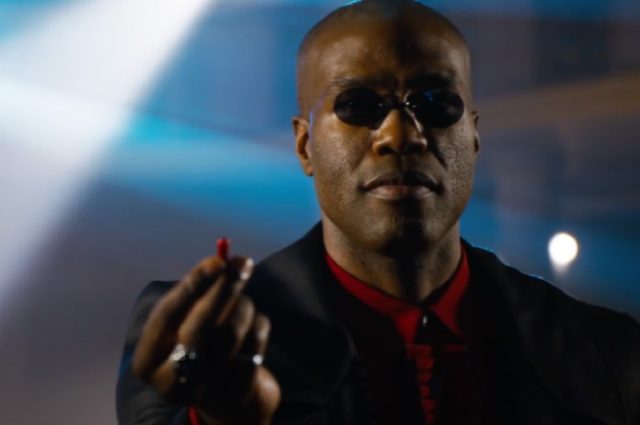 amplify / A recurring theme within the Matrix franchise is that the Matrix is an intricate deception or hoax. best through taking the "pink pill" can these trapped within it free their minds and re-enter the "precise" world. YouTube/Warner Bros.
amplify / A recurring theme within the Matrix franchise is that the Matrix is an intricate deception or hoax. best through taking the "pink pill" can these trapped within it free their minds and re-enter the "precise" world. YouTube/Warner Bros. in this accessible yet concept-upsetting ebook, readers will come upon everything from Plato's allegory of the cave and John Wheeler's it-from-bit hypothesis to how intellect and physique may interact in virtual worlds, even if reality is a mathematical constitution, and no matter if we could just be Boltzmann brains floating in a dream world. Chalmers also tackles techno-centric questions like even if smartphones prolong our minds, whether the internet is making us smart or dull, the risk of deepfakes and alternative facts, and even if there can also be an aim truth in a multiverse of digital worlds.
"Our minds are a part of truth, however there's a fine deal of reality outdoor our minds," Chalmers writes in the introduction to reality+. "fact contains our world and it will probably include others. we are able to construct new worlds and new components of reality.... There could be materials of it that we can not ever recognize. reality exists, independently of us. The actuality concerns. There are truths about truth, and we are able to are trying to find them. Even in an age of distinct realities, I nevertheless accept as true with in goal reality."
Ars sat down with Chalmers to be taught greater.
Ars Technica: you're making conventional references not simply to The Matrix however to other basic works in science fiction on your ebook. what's it about such works that resonate so strongly with philosophers?
David Chalmers: The Wachowskis do a pretty job in the Matrix of illustrating so many deep philosophical concepts. And Stanislaw Lem is naturally a extremely deep philosopher who mirrored on some of these scenarios very early on within the Fifties and Nineteen Sixties, smartly earlier than any philosophers had. I feel practically every science fiction author is a form of thinker because what is a science fiction story however a sort of concept experiment? What if there have been machines as intelligent as humans, or what if we have been dwelling in a simulation? They go on to reason concerning the consequences. In a way, it really is what philosophers do, too. We consider about these situations, and we motive about what follows. When done well, that may convey out anything vital concerning the nature of the mind or the nature of truth.
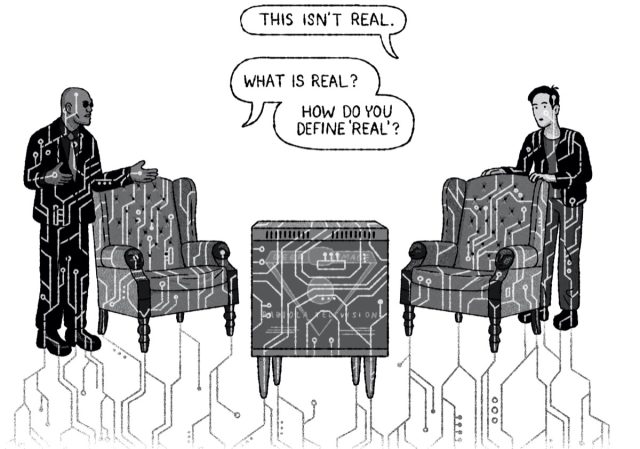 amplify / David Chalmers argues that virtual worlds are precise—simply made of bits as an alternative of atoms. Tim Peacock/reality+
amplify / David Chalmers argues that virtual worlds are precise—simply made of bits as an alternative of atoms. Tim Peacock/reality+ Ars Technica: you have got structured fact+ round three crucial philosophical questions. Let's birth with the primary: What does it suggest to be real?
David Chalmers: i might never truly taken aside that thought before, as a result of we use the notice "actual" in so a variety of ways in usual existence. within the conclusion, i stopped up differentiating five distinct strands in our concept of the actual. One strand says that to be real is to make a change to issues on the earth, to have causal powers, as philosophers put it. a different stand: To be precise is to be out there impartial of us, unbiased of our minds. If or not it's all in the mind, or not it's not actual. If it's outdoor the mind, then it has a certain reality. a third strand if whatever thing is an phantasm, it's now not actual. in case you see a red elephant in entrance of you, however nothing like it truly is actually occurring, then here is now not actual.
commercialI feel I could make the case that, in precept, if we're in a simulation-like world, then the digital objects there make a change. these digital objects are accessible independently of us. And most importantly, they needn't be illusions. When I actually have an event of, say, a tree in front of me and i'm in a digital world, then that needn't be an phantasm. it be just that the tree is digital. or not it's product of bits. it truly is kind of like being manufactured from atoms. We don't say the tree would not exist just because it's made from atoms. So, likewise, I think we should not say the tree would not exist, or the tree is rarely real, simply because it's manufactured from bits. So in precept, a virtual world can also be just as real as a physical world.
Ars Technica: virtual reality in its present incarnation is greater of a mixed truth atmosphere, in that a biological grownup in the actual world is hooked right into a digital world.
David Chalmers: VR americans every so often speak a couple of fact-to-virtuality continuum. I need to reject that way of speakme because I think we must speak about a physicality-to-virtuality continuum. physical reality and virtual reality are both forms of truth. There are true digital objects, and issues definitely are going on in digital space. That's no illusion. it's simply that they're reasonably primitive right now.
even so, they're getting improved quickly. The main social digital world to date has been second life, however that peaked about 15 years ago, and it is not specific virtual reality since it's no longer immersive. it's now not skilled in 3D all around you. or not it's just some thing you event on a 2d display. 2nd life is tough to port to VR since you need a a great deal larger frame cost, which is very complicated to do with the 2d lifestyles utility. There are a bunch of social virtual worlds out there now in genuine VR: VRChat, Altspace, Rec Room. None of them has caught on within the identical wide approach that 2d existence did.
commercial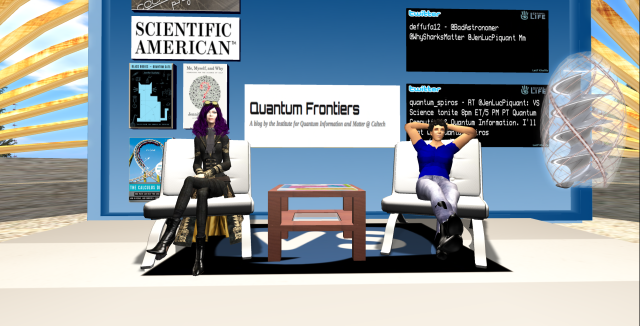 amplify / 2nd lifestyles is a primitive instance of a 2nd non-immersive virtual world. right here, Jennifer Ouellette interviews physicist Spiros Michalakis in-world for a 2014 episode of basically talking Science. Jennifer Ouellette
amplify / 2nd lifestyles is a primitive instance of a 2nd non-immersive virtual world. right here, Jennifer Ouellette interviews physicist Spiros Michalakis in-world for a 2014 episode of basically talking Science. Jennifer Ouellette all over the pandemic, I began the use of VR for average weekly conferences with several fellow philosophers from all over. these were genuine interactions I had with actual people in real areas. I feel the area was Bigscreen, the place you could do things like throw tomatoes and paper planes round. but the laws of this world are in reality no longer the common legal guidelines of Earth physics. So we did a bit of of experimentation, trying to figure out the physics of this virtual world.
Ars Technica: Let's move to the expertise query. Is it viable to definitively prove or disprove that we're basically living in a simulation?
David Chalmers: It depends upon what sort of simulation we bear in mind. a less than perfect simulation is one with a lot of system faults that demonstrate themselves. maybe if we're in an imperfect simulation, we may know, because we would observe a bunch of system faults. perhaps the simulators could speak with us, reveal us the source code, flip the Empire State building the other way up. That could be pretty convincing proof that we were in a less than perfect simulation, however wouldn't be proof.
the hardest case is the "ultimate simulation" speculation: a simulation it really is indistinguishable from the world it's simulating. Then it's very complicated to see what facts you might ever get that might show you were not in the sort of simulation as a result of that facts may always be simulated. I need to argue that as a minimum the excellent simulation speculation isn't anything we will test and distinguish from usual physical truth. for many people, that capacity or not it's now not a scientific speculation as a result of science requires falsifiability; ideally, there could be as a minimum some connection to testability.
here's a work of philosophy, not a work of science. In precept, we have the capability to construct best simulations. We could, in principle, join somebody as much as an ideal digital truth—no longer with the know-how we have now, however with the technology we are able to have inside the subsequent century. We could make it an empirically proven possibility that individuals may also be connected to perfect simulations and be unable to distinguish them. So it's nonetheless a meaningful speculation that we're in a simulation, although it turns out there's nothing we are able to do to investigate it or to falsify it.
Ars Technica: Does it count even if it's precise or a simulation in case you can not tell the difference?
David Chalmers: Some people will say if we're in an ideal simulation, then our lives are just illusions—deceptions—and this is a horrific issue. My view is that if we're in a perfect simulation, it's no longer an illusion, it needn't be a deception, the realm round us is perfectly actual, and our lives can also be virtually as significant as earlier than. although we found we were in a simulation, that would be surprising initially, however i believe after a little while, life would go on.
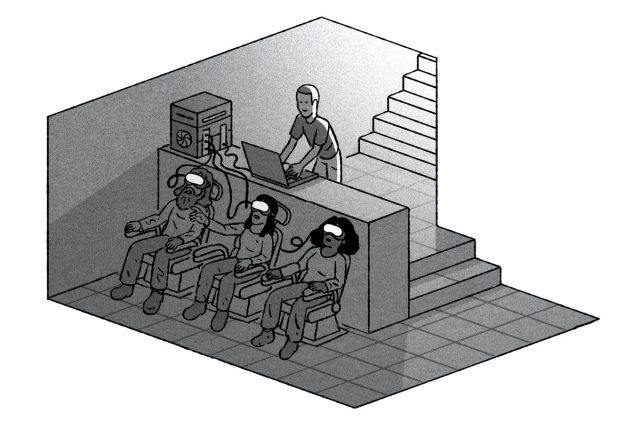 magnify / Mark Zuckerberg operating a latest edition of Plato's cave. Tim Peacock/truth+
magnify / Mark Zuckerberg operating a latest edition of Plato's cave. Tim Peacock/truth+ Ars Technica: If we're residing in a simulation, it raises an obtrusive question: who is the simulator? despite the fact that you are an atheist, you wrote that you have been rethinking the concept of god.
David Chalmers: I've not ever truly been interested in the thought of a god. i like a naturalistic picture of nature governed with the aid of quasi-scientific laws, however the simulation hypothesis opens up room for something at least a bit bit like a god. If there is a simulation, possibly that simulation turned into created by a person who's potentially omnipotent and all-understanding about what goes on in the simulation. these are at the least three of the properties of the average God: creator, all-powerful, all-knowing.
nonetheless, the simulator can also lack definite other homes, like being all-respectable, as an instance. For all we be aware of, the simulator is just a teenaged hacker in the next universe up. There's no certain purpose to consider there may be any enhanced knowledge or goodness there. I partly obtained into this about 15 years in the past through staring at my 5-year-old nephew play with SimCity. He constructed up the city and the ambiance and all the people. Then he noted, "Now, right here's the fun half," and he just set hearth to all of it, despatched in earthquakes and tidal waves. i thought, "adequate, now I remember the historic testament God."
commercial "For all we recognize, the simulator is barely a teenaged hacker in the subsequent universe up."actually, there's no motive to believe we may still worship this simulator or construct any form of ethical system around them. So I do not know if the simulator deserves the identify of a full-scale god. In some traditions, there may be the thought of a demiurge: lesser gods, half-gods, who do the work of creating universes. So possibly the simulator is a little bit like a demiurge. I nevertheless consider of myself deep down as an atheist, but probably atheism seems to be according to definite very restricted forms of naturalistic gods.
Ars Technica: That brings us to the price question: can you lead a great, meaningful existence in a virtual world? How will we navigate ethics during this digital ambiance, mainly in regards to what you call "pure sims" (wholly simulated beings)?
David Chalmers: There may be commonplace humans hanging out in virtual environments through connecting to headsets etc. however there are also the non-playable characters (NPCs). They are not people, however fairly algorithmic creatures that exist in the video game. I believe only a few americans would argue that the NPCs we now have presently have moral reputation on par with people. If somebody shoots an NPC in a video video game, we do not consider they've finished some thing morally wrong. on the other hand, if we fast-ahead into the long run, as soon as artificial intelligence has been developed and we get to human-degree AI, then or not it's possible there may be NPCs inner a virtual world that are as complex and complicated as we're.
Then the question becomes "do they deserve ethical status?" For me, that query very a lot turns on a question about cognizance. Human beings are mindful. we have subjective experience. We experience everything that happens to us from the first-adult point of view, whether or not it's seeing or listening to or feeling pain or pleasure. Will these AI programs or complicated NPCs be aware? Will they've true, first-adult subjective journey? I think they might. my very own view is there's nothing special about biology. each silicon and biology, in principle, can help the identical kind of cognizance, regardless of the change in substrate.
If an NPC has focus like ours, i'd argue very strongly that it has ethical popularity like ours, too. or not it's now not adequate to indiscriminately cause suffering for these creatures. it be now not adequate to kill them indiscriminately.
 magnify / In Free man Ryan Reynolds performs an NPC who develops cognizance and free will. 20th Century Studios
magnify / In Free man Ryan Reynolds performs an NPC who develops cognizance and free will. 20th Century Studios Ars Technica: That challenge turned into explored in the 2021 film Free guy: A non-playable persona in a video game suddenly develops free will.
David Chalmers: precisely. Free man is an enlightened movie in many respects. here's our world. or not it's true. We deserve respect. there's this super conversation between guy and his best friend. guy asks, "Does that mean none of this is real?" And his chum says, "Come on, i'm sitting right here with my best friend, who's going through a troublesome time, making an attempt to help him via all this. If it really is not precise, I have no idea what is." And within the conclusion, they birth what quantities to a civil rights move for NPCs in this video video game.
Ars Technica: From a neuroscience angle, there is a way in which the mind is already constructing our in my opinion skilled fact, due to the fact the mind filters and creates what we perceive. i am curious if there is anything else we can take from that and observe to digital worlds.
David Chalmers: We may consider of perception as a backside-up method, absolutely pushed by way of sensory and different inputs that have an effect on the brain, but we have realized there may be a very mighty desirable-down part in notion. The brain has expectations. It has prior chances. It has models that each one this has to fit into. We are inclined to deal with digital worlds in the identical means: The mind is getting the right kind of inputs, and the brain is biased to are expecting definite forms of objects in the environment, certain shapes and sizes, so we very naturally interpret all this as true.
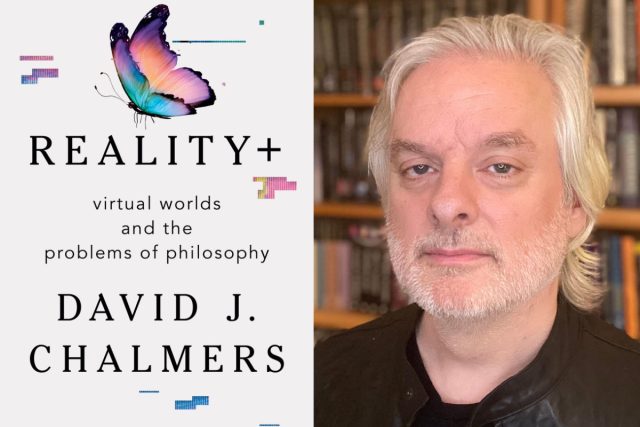 enlarge / NYU philosopher David Chalmers ponders the philosophical implications of virtual worlds. W.W. Norton/David Chalmers
enlarge / NYU philosopher David Chalmers ponders the philosophical implications of virtual worlds. W.W. Norton/David Chalmers but then it gets just a little more advanced. once you basically comprehend you might be in a virtual world, when you placed on a headset, your expectations are different. This can give rise to what I name "the feel of virtuality." You be aware of the objects around you don't seem to be actual, and this someway permeates the manner you perceive them. possibly you are in an augmented reality, with a mixture of digital objects and physical objects. at the least for now, they behave in very different ways. Your hand will go straight via a Pokémon Go creature, nonetheless it might not go through a real animal. The augmented reality objects are usually somewhat cartoonish, but I do suppose or not it's going to be vital going ahead, once we're using augmented fact, that we've a clear feel of what is actual and what's virtual.
commercialOne analogy is looking in a mirror. the first time you ever analyze a replicate, your reaction is to wonder what's in the back of the replicate. however very at once, we learn how mirrors work. I feel the equal is right for VR. when you turn into refined with VR, you have got the sense that all here's occurring in virtual area, no longer in a physical space. that is one factor the place I consider the exact-down nature of notion can support us steer clear of being deceived via digital environments.
Ars Technica: Has the experience of penning this booklet induced you to alternate your mind about anything else?
David Chalmers: I began off as what philosophers call Cartesian: The simplest thing we can learn about for bound is our own minds. external truth is far away from us and tough to learn about for certain. We can be completely out of contact with it. however the more I begun brooding about digital realities and digital realities and their connection to actual realities, the greater I bought the sense i am a little bit extra in contact with the world around me than i thought i was. I came to feel that or not it's truly the structure of the physical world that matters.
probably we can not comprehend what the area is fabricated from, no matter if it's subsequently digital/silicon or physical/organic. but we are able to at the least recognize the constitution of issues. It turns out this is respectable satisfactory for many purposes. might be I can't understand for bound even if i'm in a simulation, but there is that this structural core of truth that we can learn about. The greater you think about virtual fact and augmented reality and physical truth, as a minimum for me, the extra that rings proper.
Ars Technica may additionally earn compensation for earnings from links on this publish via affiliate classes.
0 comments:
Post a Comment